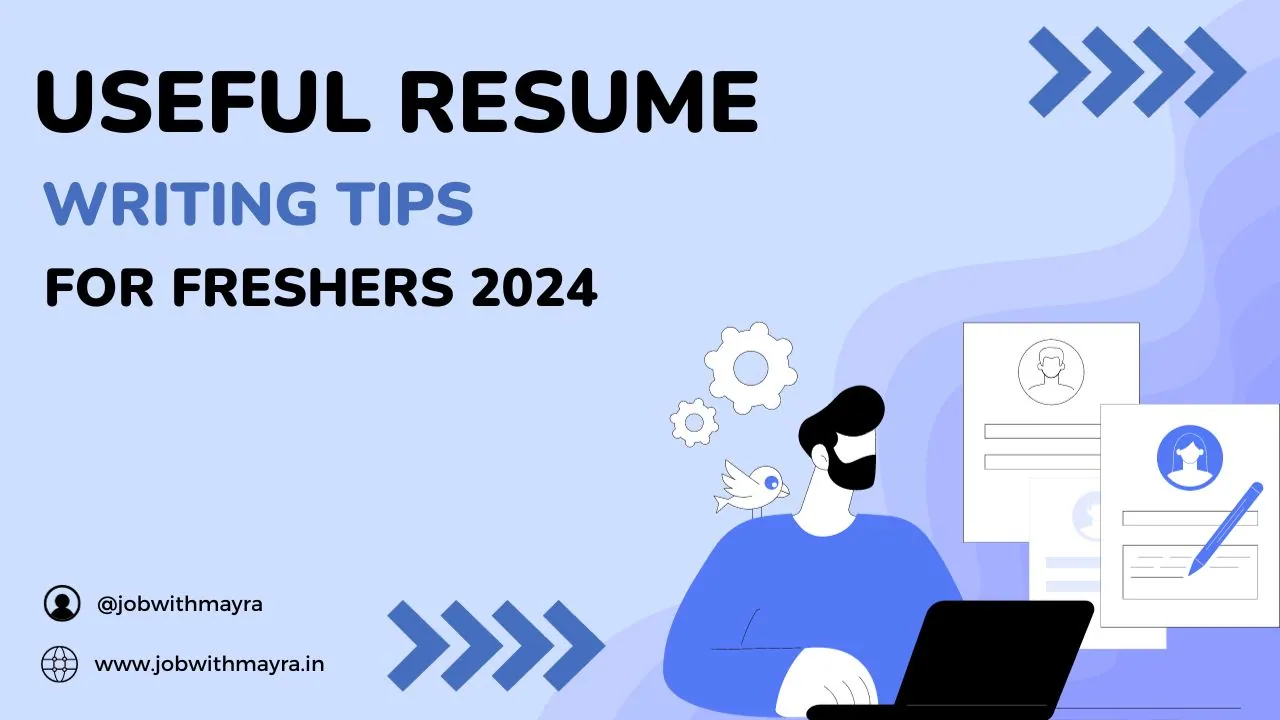A resume is a formal document that represents you and is required when applying to a company. A well-written resume is your ticket to getting an interview call. Recruiters sift through hundreds of resumes daily, so it’s crucial to be meticulous when drafting yours. Tailoring your resume to the specific job you’re seeking can greatly increase your chances. Below, you’ll find invaluable tips for crafting an effective and impressive resume, tailored to the needs of freshers in 2023.
Effective Resume Writing Tips for Freshers
1. Read the Job Description
Before you start writing your resume, thoroughly review the job description. Tailor your resume to be specific and relevant to the job. Reading the job description helps you incorporate keywords throughout your resume, making it stand out.
2. Type of Resume
Choosing the right resume format is essential. Options include Chronological, Functional, and Combined formats. Freshers should focus on skills over work experience, making the Functional format a better choice.
3. Contact Information
The opening section of your resume should include your name, phone number, email address, and possibly your address (or just city and state). Ensure your email address is professional, and prominently feature your first name.
Don’t forget to include the URL of your LinkedIn profile. If you use other social media profiles, personal blogs, websites, or portfolios, ensure they present a professional image.
Also Read: 20 Useful Interview Tips for freshers
4. Resume Headline
Your resume headline offers a snapshot to the recruiter. Craft a 3-4 line summary that includes your career objective and academic achievements. Incorporating keywords from the job description can make it even more appealing.
5. Education & Certification
Highlight your education, training, and certifications. List your highest qualification first, such as:
- Post-Graduation
- Graduation
- Intermediate
- High School
Include your major and minor subjects. Create a separate section for training and certifications, whether obtained from your college, another institute, or online platforms. Mention any scholarships you’ve received.
6. Experience (Internship, Projects)
Even without professional work experience, you can showcase your skills by listing experiences gained during internships, educational projects, or volunteer work.
For projects, mention:
- Project name
- Duration
- Team size
- Brief description
For internships, include:
- Company name
- Designation
- Department
- Duration
- Brief description
7. Font and Layout
Maintain a clear, organized, and easily readable layout for your resume. Avoid clutter or excessive white space. Stick to basic fonts like Times New Roman or Arial, with a font size between 11 and 12. Use bullet points to emphasize key information.
Regarding margins, freshers should keep them at approximately one inch on all sides. If you feel there’s too much white space, adjust the line spacing to 1.15 or 1.5. However, keep margins below two inches.
8. Skill Set
Carefully examine the job description for specific keywords. Incorporate these keywords throughout your resume, as they are crucial for optimization. Many recruiters use Application Tracking Systems (ATS), which scan resumes for relevant keywords. Place keywords strategically rather than grouping them in a single paragraph.
9. Interest & Hobbies
While it’s great to have hobbies and interests, only include those relevant to the position you’re applying for. Highlight any hobbies that directly relate to the job or have earned you recognition or awards.
10. Extra-Curricular
If you’ve participated in extracurricular activities such as debates, sports, science fairs, volunteer work, NCC, NSS, or cultural activities, consider including them. Focus on the most relevant activities rather than listing them all.
11. Any Achievement & Honor
Don’t forget to mention any achievements or honors you’ve received. Highlight relevant accomplishments in your education, internships, social work, or other experiences. Keep your resume honest and memorable.
8 Things to Keep in Mind While Writing a Resume for Freshers
1. Make it Readable & Printable
Ensure your resume is easily readable. Use legible fonts like Arial, Times New Roman, or Calibri, with a font size of at least 12. Highlight key information with bullet points for quick scanning.
2. Don’t Use Templates
Avoid downloadable resume templates as they can be challenging to modify. Many templates come in table format, making customization difficult.
3. Don’t Copy from Others
Craft your resume independently. Avoid copying from others, as recruiters can easily spot identical resumes. If your college’s Training & Placement Cell provides a standard format for campus recruitment, that’s an exception.
4. Don’t Lie
Include only truthful and relevant information on your resume. Lying can lead to severe consequences, including being blacklisted by companies. Highlight what makes you the best candidate honestly.
5. Length of the Resume
Freshers should aim for a one-page resume, as it provides enough space for essential information. Recruiters review resumes quickly, so keep yours simple, clear, and to the point.
6. Don’t Be Generic
Avoid generic buzzwords like “hard worker” or “team player.” Instead, provide concrete evidence of your skills and strengths. What have you achieved that demonstrates your qualities?
7. Don’t Mention Weaknesses
Resumes should focus on strengths, not weaknesses. There’s no need to list weaknesses. Save that discussion for a job interview, if necessary.
8. Proofread
Before finalizing your resume, proofread it thoroughly. Ask a family member, friend, or senior person to help identify errors in layout, consistency, sentence structure, typos, and grammar.
By following these resume writing tips and keeping these considerations in mind, you can create a flawless resume that enhances your job search prospects. Good luck!
